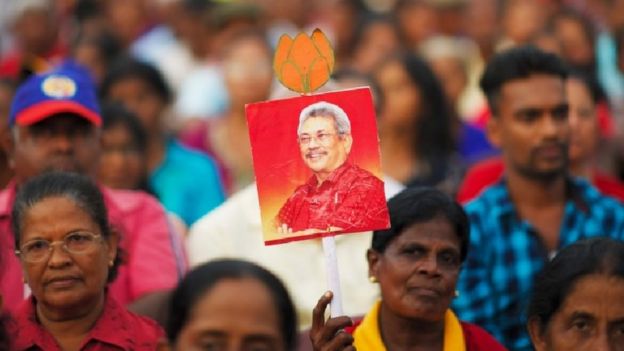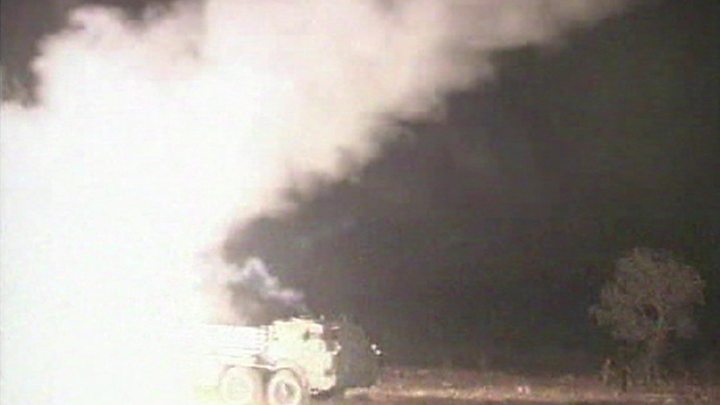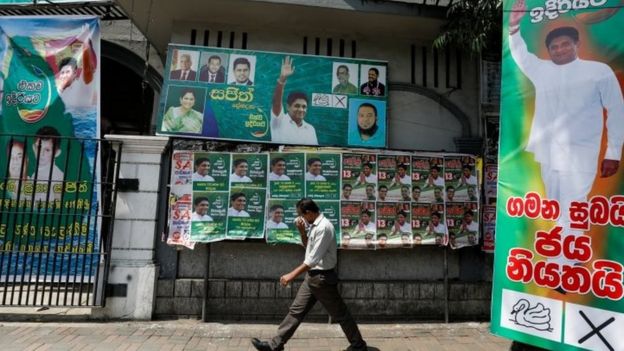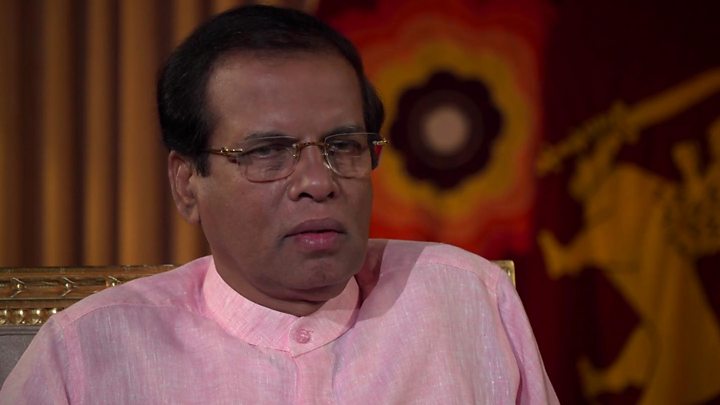London, 16 Nov. 2019,
Sri Lankans have been voting to choose a new president, seven months after a devastating terror attack killed more than 250 people.
A total of 35 candidates are vying for votes in the presidential election, the third since the end of the country’s decades-long civil war in 2009.
The current president, however, was not on the ballot.
Maithripala Sirisena decided against running after coming under criticism following the Easter Sunday bombings.
The attack by Islamic State militants, which targeted churches and top-end hotels, left at least 253 people dead.
The government was forced to later admit it had suffered a “major intelligence lapse”, with the defence secretary revealing an Indian intelligence warning from the beginning of the month about planned attacks was not properly shared by the authorities.
Just before polling got under way, there were reports of violence in the country’s north-west as gunmen opened fire on a convoy of buses carrying Muslim voters, but police said there were no casualties.
Turnout was reported to be high, with election monitors predicting that it would reach 80% – higher than average for Sri Lankan elections.
Who could be Sri Lanka’s next president?
Despite the two-foot long ballot paper to accommodate all the candidates’ names, this is an election with two clear frontrunners, one of whom has been accused of human rights abuses during his decade as defence secretary under his brother’s presidential rule.
Gotabhaya Rajapaksa was in power when thousands of people – particularly Tamils – went missing in what have been described as enforced disappearances between 2005 and 2015.
But it is also his role in ending the civil war which boosted Mr Rajapaksa’s fortunes after this year’s Easter Sunday attacks.
 Image copyrightAFP
Image copyrightAFPHis tough stance on security impressed many in the country’s Sinhalese Buddhist majority following the attack, with supporters choosing to overlook the various allegations against him – including questions over citizenship.
The importance of security to voters has not gone unnoticed by his main rival, fellow frontrunner Sajith Premadasa, who launched his campaign with a promise that if he won, he would hire the army chief who defeated the Tamil Tigers, Sarath Fonseka, to oversee national security.

More about Sri Lanka and the Easter Sunday bombings
- The family networks behind the bombings
- Controversial ex-defence chief eyes power
- Sri Lanka’s Muslims ‘demonised’ after Easter bombings
- St Anthony’s ‘church of miracles’ a symbol of hope


However, Mr Premadasa has more regularly focused on social issues, promising to eradicate poverty and improve housing.
 Image copyrightAFP
Image copyrightAFPLike his rival, he already has a loyal support base. The son of a president who was assassinated by Tamil Tiger rebels in 1993, he is the current housing minister and has managed to take on the Rajapaksa family in their own region.

Big choice for voters
Yogita Limaye, BBC News in Colombo
The ballot paper is the longest it has ever been in the country’s history – 35 names. That’s why the period for voting has been extended by an hour.
I met voters coming out of a Colombo polling station, their fingers inked after they cast their vote. Shahini Liyanagama, a first-time voter, said the Easter Sunday bombings weighed heavily on her mind.
“It was the first time I thought I could die, because one of the attacks was very close to my home. I think my country is very unstable at the moment, so I want that to change,” she told me. Mohommad Farouk Mohodin, a senior citizen, said he voted for a “new line of thinking”.
Many Sri Lankans believe the current government has failed to protect them, which is the big challenge for ruling party candidate Sajith Premadasa.
In the country’s north where Tamil minorities live, there is the fear that Gotabaya Rajapaksa could win.
He is accused of human rights violations against Tamils. Kanagasabai Ratnasingham, 82, believes Mr Rajapaksa was behind the disappearance of his son in 2006. “If he comes to power, it will be dangerous for us,” he told me.
Mr Rajapaksa has always denied the allegations against him and among many of the Sinhalese majority, he is seen as the strongman who ended the war.

What happened to the current president?
Maithripala Sirisena swept to power in a surprise victory against Mr Rajapaksa in 2015.
But he has decided not to try for a second term, with no explanation forthcoming.
However, he is increasingly unpopular with Sri Lankans. Evidence he may have disregarded intelligence about the Easter Sunday bombings came hot on the heels of a constitutional crisis sparked by Mr Sirisena sacking his own prime minister.

And then there were a number of bizarre rants – about the cashew nuts on board Sri Lanka’s national carrier and the organisers of a gig by Spanish pop star Enrique Iglesias – he said they should be whipped.
But what do voters care about?
National security is arguably the biggest issue. However, equality for minorities and unemployment are also playing on voters’ minds.
But the two candidates also promise something different on the international stage. Mr Rajapaksa has said he plans to “restore relations” with Sri Lanka’s top lender China if he wins the election. This may be controversial in some circles, due to concerns over the size of Sri Lankan debt to the Asian superpower.
Mr Premadasa, meanwhile, is seen as leaning more towards India and the US.
- Sri Lanka conflict: ‘Why can’t you find our sons?’
- Sri Lanka’s war 10 years on: Finding Father Francis
- Sri Lanka profiled
How does the vote work?
There is only one round in the election but voters can choose up to three candidates in order of preference. If no candidate wins more than 50% of the vote, the winner among the top two is determined after tallying the second preferences of voters.
Results are expected on Sunday, if one candidate secures more than 50% of the vote, or on Monday if the second preferences need to be counted.